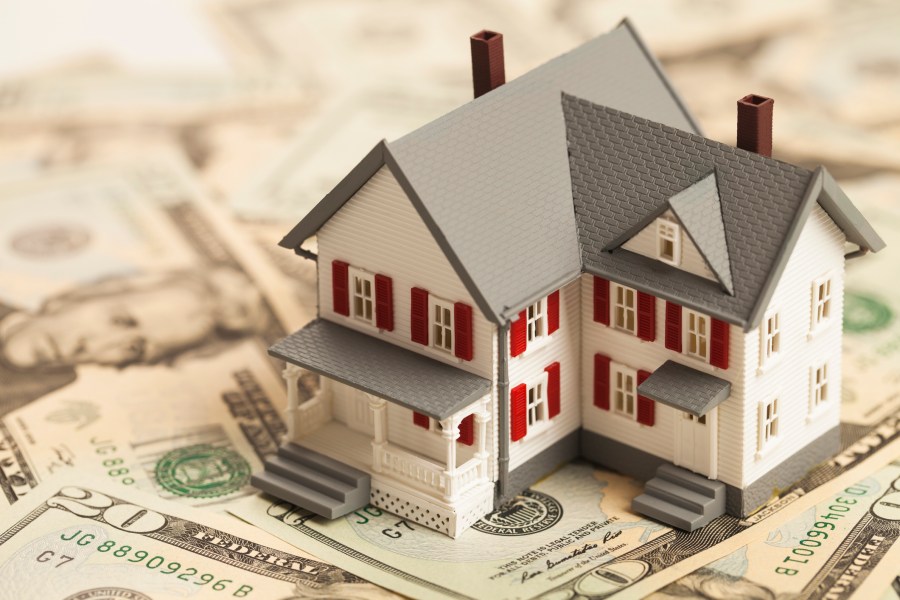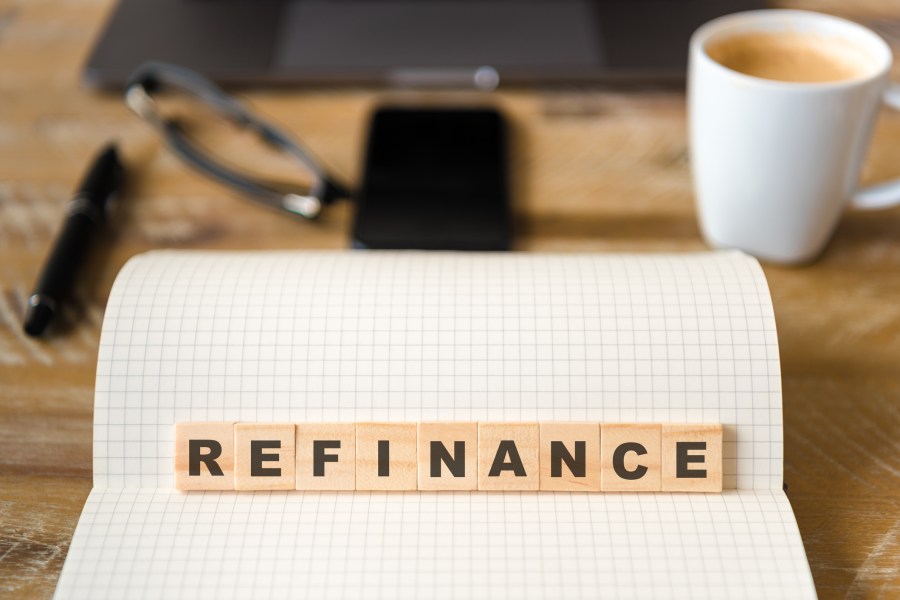
Mortgage refinancing is the act of buying out your old mortgage using a new mortgage. In other words, refinancing a mortgage is like trading one mortgage for another. There are a variety of reasons you might be considering refinancing, the most common of which is to secure a better interest rate. You might be looking for a shorter term loan that comes with a lower interest rate. Or you might want to borrow against the equity that you have acquired in your home.
Refinancing a mortgage isn’t too complicated of a process. First, you apply for a refinancing loan, and once it is approved, your lender clears the payment for the old mortgage leaving you to pay the new one according to its terms and conditions. But refinancing a mortgage does cost money and will temporarily cause your credit score to dip. So it’s important to think strategically about whether or not refinancing is the right decision for you. This guide will introduce you to a number of reasons why you might want to refinance, and walk you through the factors to consider before you do, in order to make sure you make the right choice at the right time.
Why Should I Refinance My Mortgage?

There are many reasons why refinancing your mortgage might be the right step for you. Here are a few reasons that prompt many homeowners to consider a mortgage refinancing option.
To Change the Terms of Your Mortgage
Mortgage refinancing is about taking up another mortgage to pay off your earlier mortgage. So, when you feel like the period to repay your mortgage is too long, you can opt for a new mortgage plan with a shorter repayment period.
Mortgages with shorter loan terms are convenient because they help lower the rate of interest you pay on your mortgage. However, the monthly payments will be higher than you would pay for a long-term loan.
To Reduce Monthly Payments
Reducing monthly payments is another reason why most homeowners consider refinancing their mortgages. You may find yourself straining to make your monthly mortgage payments. If this is the case, consider refinancing your current mortgage.
Although lower monthly costs can mean a more extended mortgage repayment period, lowering your monthly deductions is an easy way to make sure you can meet your payments, especially when you are short on cash.
To Borrow Back The Equity You’ve Built
Most mortgages represent quite large loans, and banks are willing to offer these large loans to borrowers because they come with collateral in the form of the house being mortgaged. As you pay off your mortgage over time, you develop equity. Equity reflects the difference between what your house is worth and how much of your mortgage loan has yet to be repaid. For example, if you own a home that is worth $250,000 and have $150,000 left to pay on your mortgage, you have $100,000 of equity. This money can be borrowed back, as the collateral in the form of the house is still yours to offer to a lender.
You may use this equity for debt consolidation, as mentioned below, or for a variety of other reasons, including to make big renovations or improvements to your home.
Debt Consolidation
Besides having a monthly mortgage payment, you may accrue debts from your cars, credit cards, and other expenses. In such cases, mortgage refinancing can help you get some money to pay off your mortgage and debts so that you remain with only the refinanced loan to pay off.
Just as in the case above, debt consolidation through mortgage refinancing happens when you take a larger mortgage, use it to offset your current mortgage, then get the remaining money in cash to pay up your other debts. This only works if you’ve built some equity already, either by paying off part of your mortgage or because market factors have increased the value of your home, as the bank is not going to issue you a new mortgage that is worth more than what the house is worth. This loan refinancing strategy is a brilliant way to clear multiple debts.
To Avoid Paying for Private Mortgage Insurance
Most lenders expect you to pay at least 20 percent of what your home is worth as an upfront payment when taking a mortgage. If you cannot meet this payment, they expect you to have a Private Mortgage Insurance (PMI) that protects them should you default on your mortgage.
PMI is a convenient option for homebuyers who want to get a house but don’t have much money for their purchase. At the same time, though, it increases the annual balance on your mortgage.
To avoid this, you can take a refinancing option on your mortgage once your remaining balance is less than 80% of your property’s value. This helps you make a one-time payment on your home, which eliminates the need for a recurring PMI.
To Change the Rate on Your Mortgage
Most mortgage options come in an Adjustable Mortgage Rate (ARM). This means you pay lower interest rates for the first 5 to 10 years of your mortgage, but beyond that, the rates can fluctuate unpredictably.
Refinancing enables homeowners with such mortgage rates to change to fixed-rate mortgage plans. These may have slightly higher interest rates, but they are fixed and free from fluctuations.
When Is It a Good Time to Refinance a Mortgage?

Timing is crucial when it comes to mortgage refinancing. Refinancing your mortgage at the right time can save you a lot of money in the long run. The best time to refinance your mortgage is:
After You Increase Your Credit Score
A high credit score means the lender trusts your ability to repay the mortgage more. This will lower interest rates on your home’s refinanced mortgage and help you clear up your existing one even faster.
When Interest Rates Drop
A period of low-interest rates on home loans is often the best time to refinance your mortgage. If you took your initial mortgage when interests were high, leverage low-interest periods to pay it back using a low-interest mortgage refinancing plan.
How Much Does It Cost to Refinance a Mortgage?

According to ClosingCorp, the average cost of closing a mortgage refinance is about $2,398 without taxes. The most common expenses incurred during this process include:
- A loan fee of 0.5% to 1.5% of the loan amount
- A credit report fee of $30 to $50
- Appraisal fee of $300 to $500
- Title insurance of $1000
How to Refinance a Mortgage

There are several steps required to refinance your mortgage successfully. Below is a breakdown of each step.
1. Understand What Mortgage Refinancing Is
Before you apply for a mortgage refinancing plan, understand the entire process and refresh your knowledge on the basics of mortgage application. You should think carefully about whether it is a viable option for you to refinance or whether you would be better off just paying back your current mortgage.
2. Check Your Credit Score and Your Home’s Equity
Your credit score and your home’s value determines how beneficial a refinanced mortgage will be to you. Refinancing a mortgage isn’t a good option if you have a low credit score or low home equity.
3. Make the Application
For your mortgage refinancing loan application, you need to have W-2s, proof of income, bank statements for your financial accounts and investments, profit or loss statements for self-employed individuals, and the most recent monthly statement for your mortgage and any other credit listed under your home.
4. Secure Your Interest Rates
After a successful application process, your lender should give you the option to select the type of interest rate you want. A fixed-type interest rate is usually preferred because it doesn’t fluctuate.
5. Finalize the process
Refinancing your mortgage ends when you make the required payments and sign the necessary documents.
How Long Does the Refinancing Process Take?
The mortgage refinancing process can take anywhere between 45 to 60 days. How fast your refinancing process takes will depend on the type of loan, your lender, and how thorough you were with your application documents.





